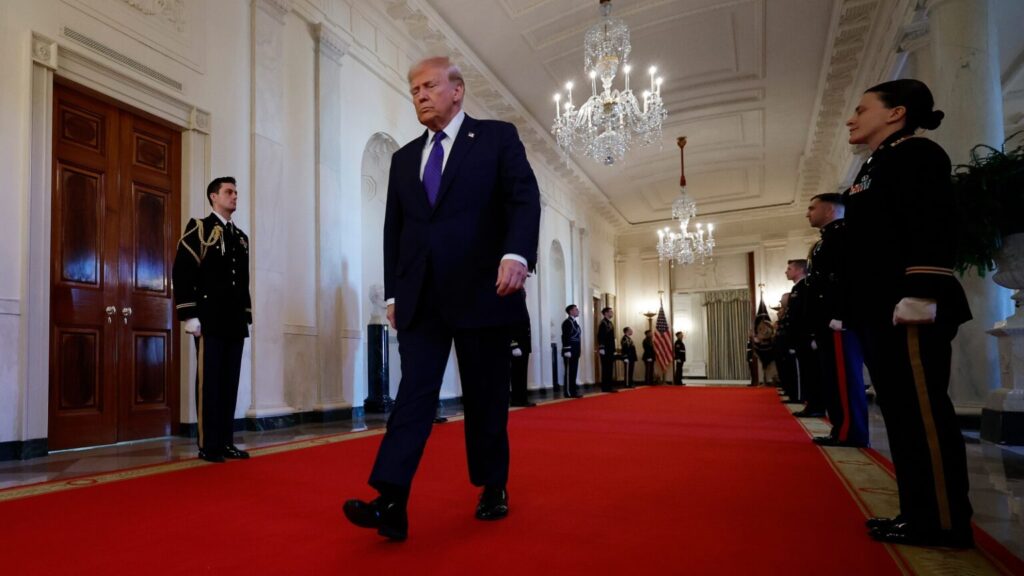President Donald Trump’s special envoy, Richard Grenell, has traveled to Venezuela to personally deliver a message to socialist leader Nicolás Maduro, demanding that his government accept the return of violent criminals deported from the United States.
During a call with reporters on Friday, Mauricio Claver-Carone, the U.S. special envoy to Latin America, stated that Grenell would make it clear to Maduro that Venezuela must take back all Venezuelan criminals and Tren de Aragua gang members who have been “exported to the United States” without conditions or delay, Fox News reported on Friday.
Additionally, Grenell is expected to demand the immediate release of American hostages being held in Venezuela, Claver-Carone added.
The trip “focuses on two very specific issues. That we expect that Venezuelan criminals and gangs will be returned, as they are, to every country in the world, without conditions, and two, that American hostages need to be released immediately, unequivocally,” he explained.
“This is not a quid pro quo. It’s not a negotiation in exchange for anything. President Trump himself has made that very clear,” the envoy added.
Also Friday, White House press secretary Karoline Leavitt confirmed that Grenell, who served an intelligence role in Trump’s first term, had arrived in Venezuela for talks.
Despite wide belief among Venezuelan citizens and much of the rest of the world that Maduro lost the 2024 Venezuelan presidential election to opposition candidate Edmundo González Urrutia, he was nevertheless sworn in for his third six-year term earlier this month.
The U.S. does not recognize Maduro as the legitimate president of Venezuela.
Opposition leader María Corina Machado has urged Venezuelan citizens to take to the streets in protest against the Maduro regime, insisting that González be recognized and installed as the legitimate president of Venezuela.
Up to 10 Americans are currently held in Venezuela, though the State Department has not classified their detention as wrongful. Three of them are U.S. citizens who, according to Venezuelan Interior Minister Diosdado Cabello, are accused of participating in a scheme to destabilize the country.
The State Department has denied any U.S. involvement in a plot to oust Maduro, Fox added.
The exact number of Americans currently held in Venezuela is unclear following the major prisoner exchange in 2023. In that deal, Washington and Caracas negotiated the release of dozens of prisoners, including 10 Americans, in exchange for Colombian businessman Alex Saab, a close ally of Maduro.
Saab was detained during the first Trump administration on charges tied to a $350 million bribery scheme.
Elsewhere, Trump sounded a defiant and confident tone on Thursday after the leaders of Egypt and Jordan stated they would not accept and resettle Palestinian refugees from Gaza.
Earlier in the day, reports said the Egyptian Foreign Ministry issued a statement saying that the Egyptian government supports “the Palestinian people’s insistence to remain on their land, defending their legitimate rights and respecting international law.” Voice of America reports that Egyptian public opinion is strongly against taking in refugees from the war-torn region.
The ministry also promised to reject “any infringement upon those inalienable rights, whether through settlement activities, annexation of land, or the eviction of the rightful owners through displacement or encouraging the transfer or uprooting of Palestinians from their land, whether temporarily or permanently.”
President Abdel Fattah el-Sissi recently told a group of military officers that relocating Palestinians to the Sinai would be feasible, but the challenge would be gaining acceptance for such an idea among the Egyptian population, VOA reported.
Jordan’s Foreign Minister Ayman Safadi also rejected Trump’s proposal, saying that “Palestine is for the Palestinians and Jordan is for the Jordanians and that the solution to the Palestinian problem is located on Palestinian soil and embodied by a Palestinian state.”
But during a question-and-answer session with reporters in the Oval Office, Trump waved off those statements when a reporter asked him about the situation.
“Mr. President, Egypt’s president and the King of Jordan have both said that they won’t take in displaced people from Gaza like you suggested. Is there anything you can do to make them do that? I mean, tariffs against those countries, for example?” the reporter asked.
“They will do it,” Trump said before pausing. “They will do it.”
“What makes you say that?” the reporter followed up.
“They’re going to do it, OK? We do a lot for them, and they’re going to do it,” the president said.


